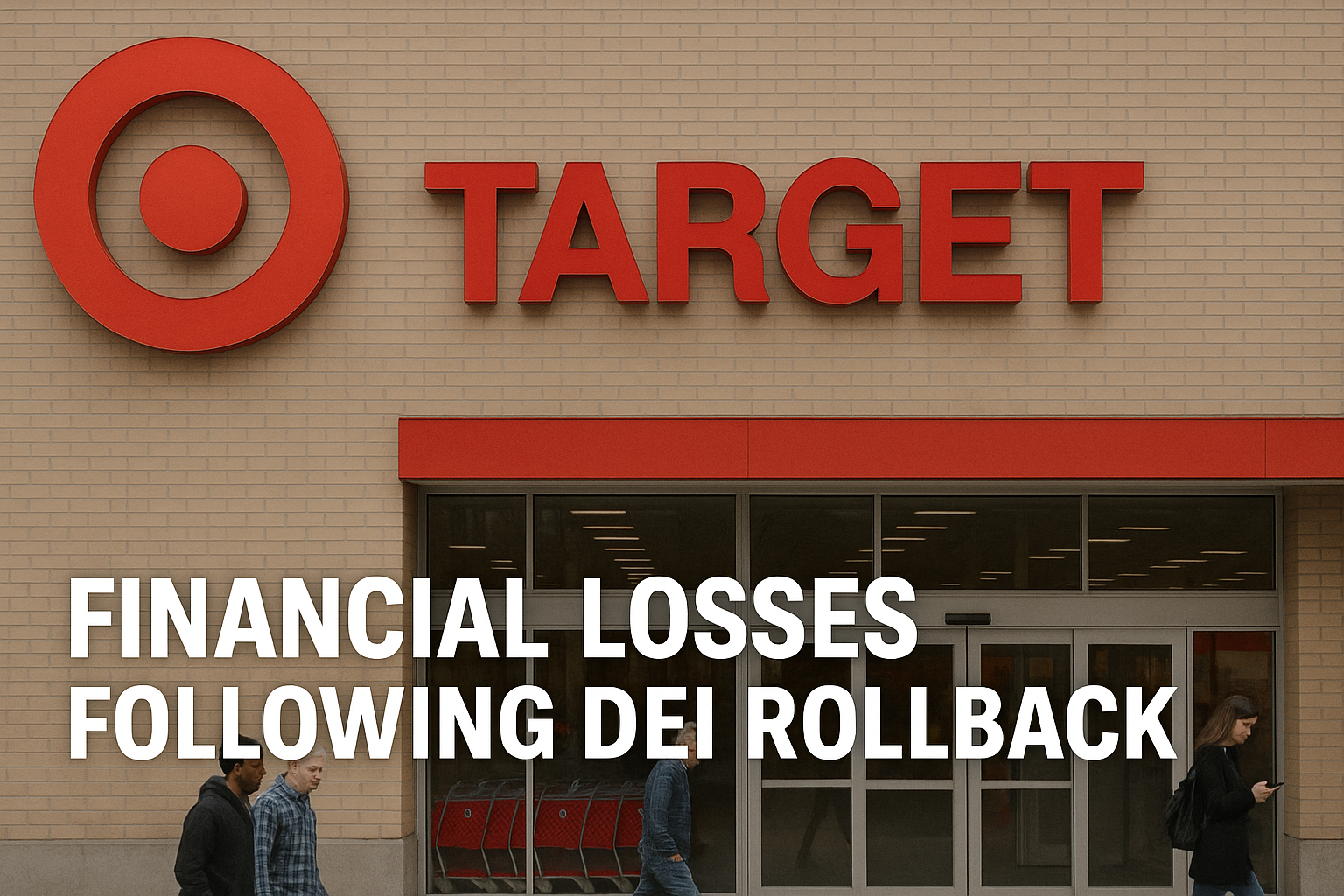Anti-DEI will Create New Names for the Same Work
DEI faces pressure from the federal government, companies pulling back from DEI face pressure from consumers. Who will win?
In the United States, the anti-woke mob that won control of the White House and Congress are running a red pen amok against any program containing the keyword “DEI” (among many, many other terms that fall under the umbrella of DEI, inclusivity, women’s rights, etc). It’s a full on assault of the entire ethos that shaped DEI as a concept.
This is truly alarming and many in the space that have built or served on DEI programs are outraged and afraid, reasonably so. I’m not here to dispel with the notion of that large, ever present dark cloud. It’s there, it’s real.
However, as with most things, there will be some positive motion here and it’s building steam. So let’s dive into what’s going to be the future of DEI and social impact at the corporate level and see what we can expect moving forward from what seems like at least the next 4 years of anti-woke hell:
DEI is getting rebranded
Companies are stepping up on the social impact front
Consumers are in revolt
Goodbye to DEI, Hello to What’s Next
I think the most obvious thing happening is that DEI is going to rebrand. In fact, it’s worth looking back before that term to see that it is an evolution, if not just a rebrand of programs like Affirmative Action or Title IX. There is a process of these movements adopting new monikers to adapt to the times and new concepts expanding them.
We may be saying goodbye to DEI, but we’re not saying goodbye to the work; at least, not entirely.
In a world where we have DOGE bros employing AI and search tools to flag any single keyword associated with any program, including words as benign and general as “women” there is going to be a lot of “rebranding” work to do. Messaging will be more covert. It will quiet the momentum of it a bit for sure.
But it won’t go away. Those of us working in this space aren’t giving up on it. Thankfully, neither are some companies.
Companies are Filling the Gap on DEI Work
I just said a lot about what’s happening at the government level. It would be a mistake to underestimate the effect that has had on businesses investing in their social impact programs.
With so many major tech CEOs aligned with this administration (hell, even attending the inauguration and sitting in front of far more worthy attendees), many companies that had previously announced major DEI programs immediately pulled back. Facebook did a full 180 on values, proving they were only ever using it for publicity. Target made a stunning reversal of policy, and have suffered an immense blow as a result from consumers who aren’t taking that shit (see more on that below).
However, some have doubled down. Costco is earning customers Target has shed by continuing not only to commit to their programs, but to proudly use DEI in their nomenclature. You might be able to kill DEI in the government’s lexicon, but you won’t be doing it in the private sector as easily.
Microsoft has decided to stand firm on the DEI hill and defend the ground. In fact, Bill Gates also confirmed he was intending to “spend-down” his fortune to ensure the wealth was committed to social good through nonprofit donations and other funding. I don’t like billionaires nor trust them, but considering how it positions Gates’s legacy against the other billionaires in his class, he knows this move will pay off dividends and I have to applaud it.
There’s a list of many others, notably:
Apple - seeing Tim Cook at the inauguration does not give me a ton of hope, but so far so good
Delta Airlines - they’ve committed to using both DEI and ESG terms publicly
JP Morgan Chase - “bring it on” said Jamie Dimon about the anti-DEI backlash
We may not see DEI rebrand in the private sector considering this support. However, if it will at the government level, it may evolve in the private sector too, just not by companies caving to public pressure. It will be more for convenience, to keep the work housed under a common moniker.
Perhaps even worse, they may have to change their tune due to federal licenses. Delta operates in the airways and has licenses from the FAA to do so. We’ve already seen the Trump administration attacking news outlets and threatening not to renew or to revoke their licenses with the FCC, essentially weaponizing federal agencies to force compliance with their policies. So Delta may find themselves getting strong-armed by the FAA on behalf of Trump and forced into pulling back on the use of DEI language.
Regardless, smart companies are seeing the true DEI popularity data of how consumers spend their dollar. They know both that consumers are more aligned with socially impactful companies and they know that the current administrations policies are deeply unpopular. It’s a perfect set of tea leaves to read and say “we’re committing fully to this” - it simply will earn them more.
They also know that going back on their policies will be disastrous, because …
Consumers aren’t playing
You must consider the time and place we find ourselves in as people, to remember that we’re all consumers and we are also concerned about how we spend our money. But even more than our consumerism, people in the US find themselves desperate and without a clear plan of action to take to fix what we’re concerned about.
We can’t appeal to the president, we can’t appeal to Congress. We can’t fix what feels like a broken system. We know we can’t protest alone. We feel powerless and are grasping at what we can do to affect change.
Boycotts become the next line of defense for all of us feeling like this. They’re effective. We get to vote with our dollar, a far more powerful vote than the one we cast on a ballot. It’s also a lot easier than lacing up boots and risking your safety in the streets.
And boycotts we have waged! Look at what happened to Target after their announcement to divest from their social impact and DEI programs:
Target's stock price declined by approximately $27.27 per share, resulting in a loss of about $12.4 billion in market capitalization by the end of February 2025
The company reported a 3.1% decrease in fourth-quarter earnings, with additional sales downturns noted in February 2025
Data from Placer.ai indicated a 9% year-over-year drop in store visits in February, followed by a 6.5% decline in March, marking ten consecutive weeks of reduced customer traffic
The rollback prompted a nationwide boycott, including a 40-day "Target Fast" led by Rev. Jamal Bryant, which reportedly involved over 200,000 participants. Many Black and Hispanic shoppers, previously among Target's most loyal demographics, expressed disappointment and reduced their patronage, citing a sense of betrayal over the company's departure from its stated values.
Target is the most widely documented financial disaster recorded from DEI rollbacks, but there are others in Meta, Tractor Supply Co, and Molson-Coors, among others. These brands have suffered a lot of reputational damage, and the financial losses are to follow (though as of writing, not yet published).
Where does that leave us?
Quite simply, we’re in a constantly shifting and evolving landscape and need to remain nimble in the way we talk about our work, but not in the work itself. The work must remain focused on the true values of restorative justice, diversity, equity and inclusion. We just might stop calling it DEI work.
The signals are clear: companies are going to fill the gap where government programs and funding for nonprofits, grants, and other programs are being eradicated. Consumers will follow those companies and eschew the ones complying in advance.
We’ve seen this so many times before, it should be expected. A brand that moves in a progressive, inclusive direction only to immediately reverse course in the face of changing headwinds never meant the work to begin with. This exposes them as frauds, it’s a major brand liability. Some, like Bud Light, can do irreparable damage not only to their core customer base, but to the newly acquired customers they gained through their program or campaigns to boot. It’s like setting both sides of the boat on fire at the same time.
We continue to field interest from companies wanting to step up, feeling compelled to do so even. Those that do will reap the consumer rewards and light a beacon for the rest to follow. Those that don’t, well, prepare to face the challenges Target has in spades. They’re only going to get worse with every company that follows suit.
If you work with a company that is ready to fill the gap, hit us up at Companies Doing Good to talk. We’ll get you a social impact program that will affect change and drive revenue at the same time.
Sources used:
https://www.mefeater.com/dei-rollbacks-spark-backlash-boycotts-and-financial-fallout-for-major-brands/
https://www.the-sun.com/news/13927694/target-dei-protest-foot-traffic-decline-sales-trump/
https://afro.com/target-diversity-backlash-market-rollback/
https://mshale.com/2025/03/28/diversity-equity-and-inclusion-rollback-costs-target-billions-and-loyalty/
https://www.newsweek.com/dei-companies-program-list-policies-donald-trump-2032960
https://blog.ongig.com/diversity-and-inclusion/dei-rollbacks

